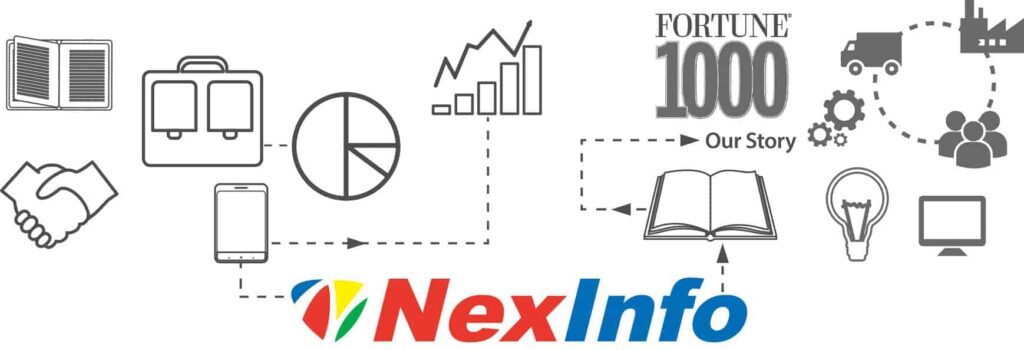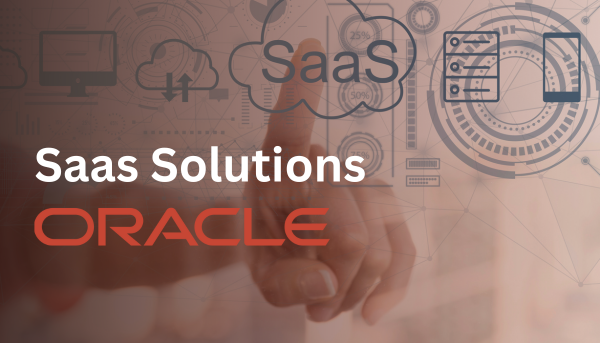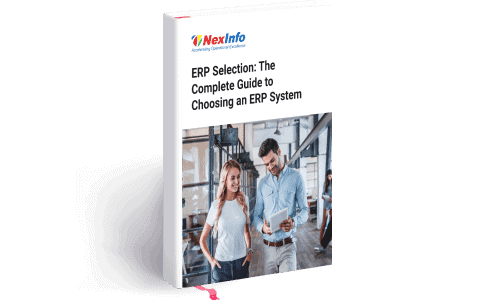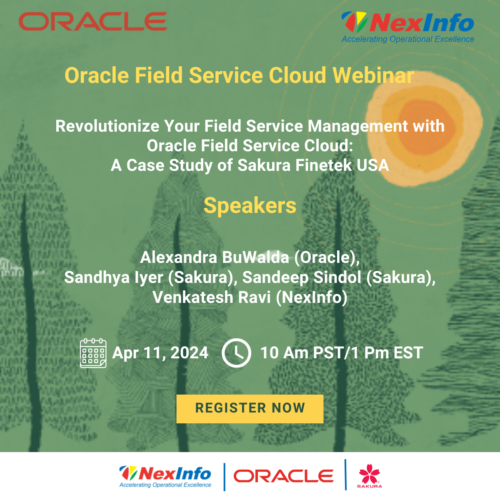When switching to a new ERP or even introducing Enterprise Resource Planning to your business for the first time, there are inevitably a multitude of processes to support.
Using an ERP system that manages every aspect of your organization is imperative. SaaS industry leader Oracle Corporation offers a robust landscape that makes sure each key area is covered.
There are a myriad of different modules in Oracle’s Fusion Cloud ERP system that allow your facility to operate at peak performance. This article will provide an in-depth look at some of the most significant ERP modules in Oracle’s cloud-based systems.
Oracle Cloud ERP Modules List: The Power Behind Your ERP
1. Financial Reporting Modules in Oracle Cloud ERP
Respond to changes quickly with a complete view of your financial environment with Oracle’s financial modules. The Accounting Hub is the command center for all things finance.
Using this finance module in ERP, you can maintain a single source of financial information that your corporate accounting and FP&A teams can trust and rely on.
Not only does it provide your facility with a core financial platform for financial reporting and processes but this module in the Oracle Fusion Cloud ERP can also help integrate accounting from other ERP systems – for example, from a sister company across the ocean or in another state – and other transactional systems in general.
Being able to harmonize the data makes for consistent, standardized accounting that the entire organization can rely on. More standout features of this finance and accounting module in ERP include:
Advanced Reporting and Analytics
Decision-supportive graphical insights and configurable and interactive dashboards make seeing the full financial picture easier than ever.
Intelligent Payables and Assets
Optical character recognition and imaging make automated invoice processing a breeze. Know about exceptions in real-time with alerts shown on role-based dashboards. Manually reconcile for trouble-free troubleshooting in the Exception Review.
Keep pace with increased global accounting through automatically calculated invoice taxes for multiple tax types across jurisdictions. Assets can also be seen on a worldwide scale because, with Oracle’s financial management system, you’re dealing with a unified source of data.
Technical Advancements in Revenue Management and Receivables
Additional financial elements included in the Oracle Cloud ERP include automated revenue management and self-service customer account management. Customers can view their accounts, make payments, and dispute transactions online, saving you time and streamlining accounting processes.
Oracle Revenue Management enables organizations to recognize revenue for performance obligations at a point in time or over time in accordance with IFRS 15 or ASC 606.
There are also a host of additional features:
- Collections solutions for high-risk accounts
- A digital assistant for fast and flexible expense management
- Joint Venture Management with accurate and automated agreements, processes, and audits

2. Project Management Modules in Oracle Cloud ERP
Intuitive scheduling tools with mobile access help your Project Managers plan and track projects and collaborate with their teams on the fly.
Project control features allow organizations to improve planning, budgeting, forecasting, and reporting of project costs and revenue with comprehensive financial controls.
Project costing features improve the accuracy of project cost accounting while standardizing and streamlining the collection of costs associated with projects.
Predictive analysis tools will give you insight into project status for quick turnarounds as inputs inevitably change. Underneath these big-picture tools are also:
In-Depth Resource Management
Teams and resources can be hand-picked using customized criteria and performance metrics shown in organizational resource pools. Keep track of project talent and keep your employees happy by aligning skill sets and career goals with projects that fit.
Improved Communication
Great project management begins and ends with transparent project communication. Conversation Threads with document sharing bring the entire team together even if they can’t be in the same room. Task management tools can also be used on mobile devices so that everyone stays on the same page.
Further project management applications include:
- Project cost controls
- Project billing and contract compliance
- Grants management for funds allocation and budgeting
ERP Implementation Services
Oracle Cloud Consulting Services
Oracle Cloud Implementation Services
3. ERP Procurement Modules
Supplier management is simplified with intuitive tools and built-in analytics. Purchasing benefits from easy-to-use buying tools that put them in a consumer-like role.
Requisitions still go through approvals, but workflows automatically increase cost savings and compliance by directing purchases to approved suppliers and negotiating pricing.
Using Oracle Procurement organizations can Streamline contract creation and increase employee productivity. The guided authoring and leveraging of pre-approved templates, clause libraries, and built-in collaboration enables procurement organizations to quickly draft quality and compliant contracts.
Some of the offerings in the Oracle Fusion Cloud ERP procurement module include:
- Procure-to-Pay with automated purchase order creation and invoice matching
- Supplier data, capability, and risk management
- Simplified, efficient sourcing and negotiations with collaboration tools
- Guided document authoring
- Searchable contract repository
- Oracle Business Network for secure business-to-business e-commerce partnering
A CRM module in ERP can help automate tasks, provide insights in one dashboard, and enhance customer experiences
4. Risk Management and Compliance in Oracle Cloud ERP
All business processes are subject to potential compliance and data integrity issues. Oracle’s e-business suite specifically addresses risk management to detect emerging problems before they occur.
This method minimizes the costs associated with security while strengthening financial controls, and audits and preventing system and financial leaks.
Critical Configuration Monitoring
Oracle Fusion Cloud ERP has the ability to track and evaluate configuration changes across key processes. This covers data and processes changed in the other modules mentioned above and below, including changes to:
- The general ledger
- Accounts receivable/payable
- Expenses
- Project management
- Procurement
This means you get to see not only outside threats, errors, and what is generally termed as to be an “exception,” but also anything happening inside your own ERP system that might seem out of place.
Additional tools for security compliance include:
- Customized Security Design with simulations for informed decision-making
- Error and fraud reduction with automated SoD (segregation-of-duties) compliance reporting
- Proactive user security monitoring
- Digitized user access certification workflows for streamlined approvals
- Incident workflow and dashboard to handle access exceptions
- Continuous monitoring of financial transactions
- Digitized SOX and audit workflows for compliance ease
- Enterprise Risk Management (ERM) workflow – the basis of an inherent risk-intelligent culture
5. Supply Chain and Manufacturing Modules in Oracle Fusion Cloud ERP
Among the different modules in the Oracle Cloud ERP software suite, the most valuable to your operations team will be those dealing with supply chain planning, production scheduling, and managing inventory in the ERP solution.
Oracle apps are built to adapt to change and their system keeps a resilient and adaptable supply chain at the forefront.
Next-Generation Demand Management
The trustworthiness of a forecast is always questioned when using it to plan for demand. Oracle’s ERP Demand Management modules are designed to keep track of past demand, highlight and monitor exceptions, track changes, and incorporate your S&OP decisions to show you the entire picture.
Items, locations, and customers can be grouped into segments that perform similarly. Seasonality, promotional events, product attributes, and other leading indicators can be added to make adjustments using the inventory module in ERP.
Most insightfully, forecasts and scenarios can be simulated when collaborating with other key stakeholders. This helps with new product launches and product retirements as well as manage recalls and other forms of non-binary demand.

Shop-Floor Monitoring and Scheduling What-Ifs
Keeping an eye on how efficient your manufacturing output is helps to avoid late orders and bottlenecks. However, they do still happen even with the most advanced manufacturing systems.
Oracle’s ERP modules for Supply Chain Management show day-to-day scheduling at a glance and help mitigate the impact of unexpected, yet common scenarios like rushed or late orders, machine breakdowns, late supplies, and labor shortages.
Visual Gantt charts and drag-and-drop scheduling adjustments make it easier to address issues in real-time. Perhaps the most advanced tools are the in-line simulations and the ability to run what-if scenarios for advanced problem-solving and avoidance.
ERP modules for supply chain management in Oracle also help with:
- Automatic replenishment with consumption rules
- Unified planning processes across multi-tier locations
- Embedded analytics for monitoring supply problems
- Setting order priority rules
- Sales and operations planning support with personalized, KPI-driven dashboards and interactive business planning
- Vendor Managed Inventory
- Product life-cycle management
- Global trade and warehouse management
- loT (Internet of Things) and blockchain database capabilities
6. ERP Analytics Modules
As is made clear in the brief analysis above, choosing an Oracle Enterprise Resource Planning (ERP) software system covers a huge breadth of solutions under the umbrella of an ERP.
Every module has its own analytics, but on a higher level, Oracle has advanced its system with Oracle Analytics for Cloud ERP, which complements all the module-based, embedded analytics in the Oracle Cloud ERP. Some advantages to this are:
- KPI management
- Prepackaged use cases
- Predictive analysis
- Best practice metrics library
- Self-service data discovery for on-demand metrics
- Collaboration and publishing
- Mobile data exploration

7. Human Resources (HR) ERP Module for Oracle Fusion Cloud
Oracle Human Capital Management (HCM) offers an efficient way of managing human resources in an ERP. It allows companies to automate their HR operations such as payroll processing, recruiting and onboarding new employees, absence management, and performance tracking.
Oracle’s HR ERP module also includes features such as employee training and development, time tracking, and compensation planning. It provides organizations with real-time access to up-to-date personnel data, ensuring accuracy during payroll processing and other HR functions.
Moreover, it offers important insights into workforce trends, enabling businesses to make informed decisions about hiring practices and policies.
8. Oracle EBS Modules in Fusion Cloud
Oracle EBS Finance modules provide powerful tools to enhance financial performance. From General Ledger and Fixed Assets to Cash Management, Treasury, Receivables, and Payables – these features allow organizations maximum efficiency in their money management processes which translates into cost savings that can give the company greater competitive advantage.
Additionally, this effective fiscal stewardship helps bolster customer confidence as well as attract more investors.
Effortlessly Connect With an Expert ERP Consultant
Based on this list of Oracle Cloud ERP modules, it’s easy to become overwhelmed with the possibilities and improvements available to your organization.
Switching to Oracle is a hedged bet, but it can be a lengthy project in itself. Choosing a trusted vendor partner like NexInfo means working with a consultant team that functions across business applications for a better return on software investment.
NexInfo starts by auditing your current software and internal processes which allows the team to gain insights on what’s working for or against you before recommending any upgrades.
The consultant team then tailors solutions that align with your company’s unique targets by suggesting Oracle Cloud ERP applications that improve upon your current systems and procedures.
NexInfo’s consultants furnish their clients with detailed road maps of all applications they recommend. Their attention to detail encourages your organization to accelerate operational excellence.
Contact NexInfo’s ERP consulting team today for more industry-specific information on the benefits Oracle Cloud ERP provides your business.








